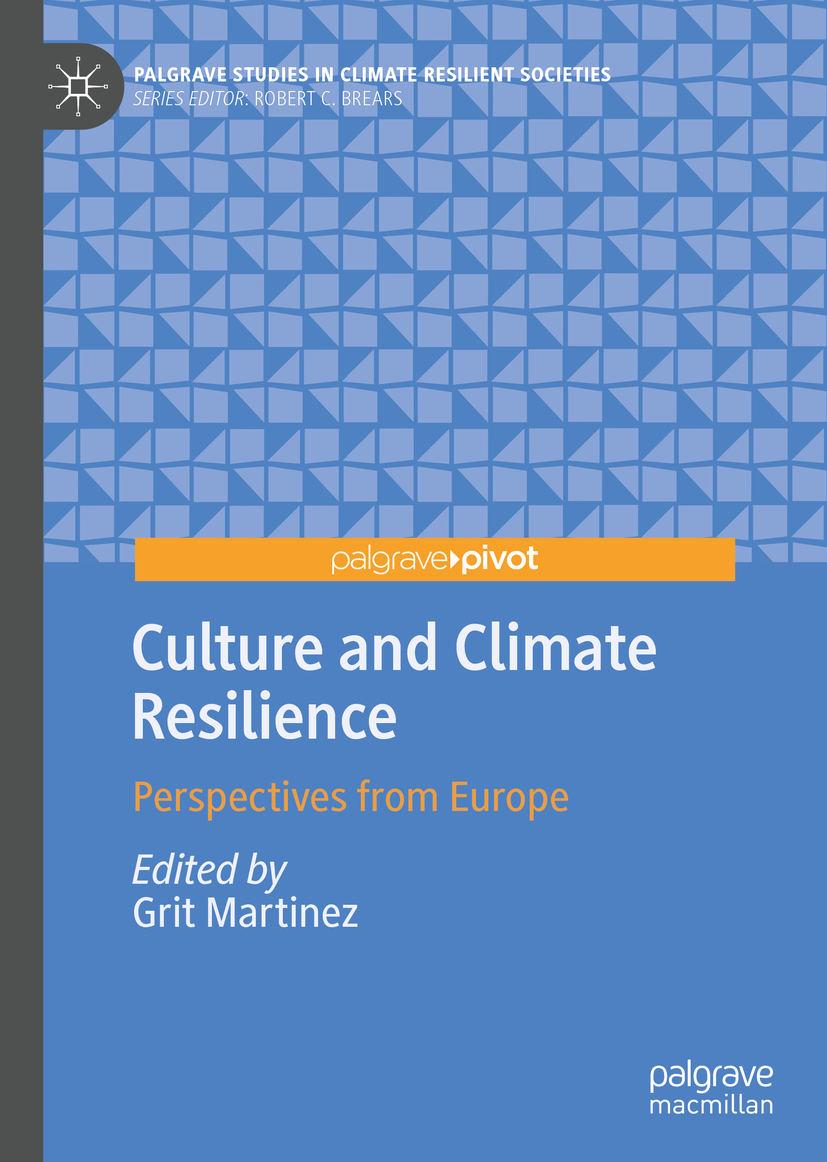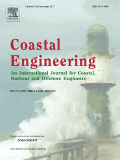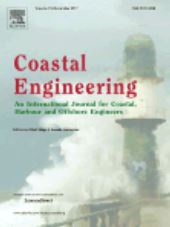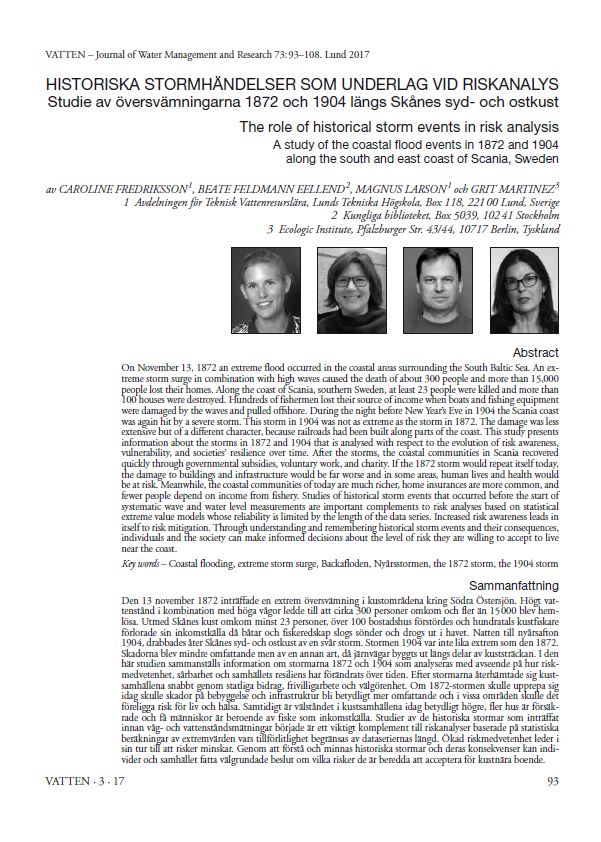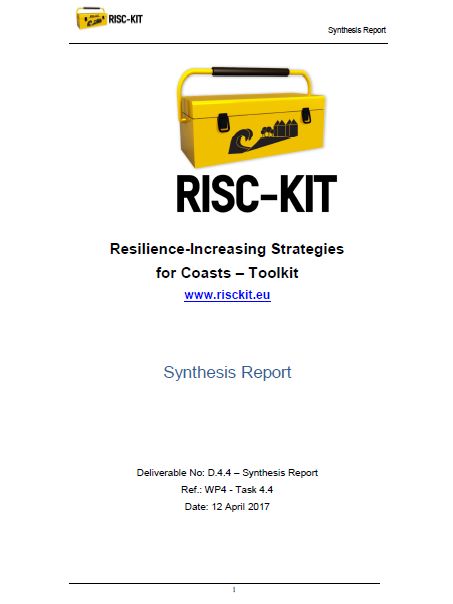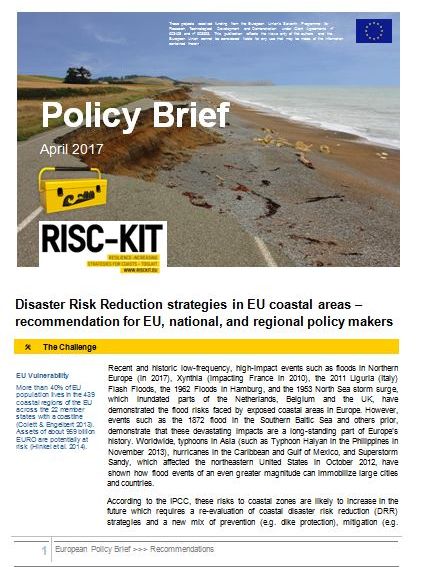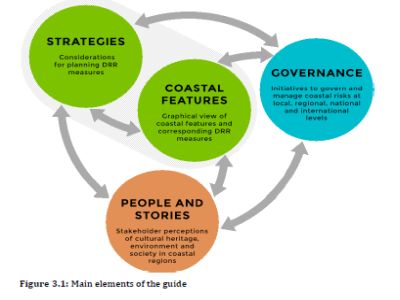Disaster Risk Reduction Strategies in EU Coastal Areas
- Publication
- Citation
Benjamin Boteler, Ap van Dongeren, Zoran Vojinovic et al. 2014: Disaster Risk Reduction Strategies in EU Coastal Areas (Policy Brief). RISC-KIT/PEARL.
Coastal storms, sea level rise and floods have caused and will continue to cause significant impacts across Europe and endanger the security of people and their livelihoods. Due to population and economic growth and the increased likelihood of hazards due to climate change, risks are expected to increase in the near future. RISC-KIT and PEARL are developing methods, tools and management approaches to reduce risk and increase the resilience of Europe’s coastal zones.
A policy brief published in October 2014 identified key messages for EU decision makers to improve Disaster Risk Reduction (DRR) strategies. The policy brief, co-authored by Ecologic Institute’s Benjamin Boteler, Grit Martinez, Nico Stelijes and Katrina Abhold, is the result of an international case study review, combining stakeholder interviews and analysis of national, regional and local policies. The policy brief is a product of the EU FP7 projects, RISC-KIT (Resilience-Increasing Strategies for Coasts-Toolkit) and PEARL (Preparing for Extreme and Rare events in coastaL regions).
The analysis found that implementation of national DRR strategies at local levels varies due to a variety of physical, socio-political and cultural factors. Key messages for European policy makers include:
- Climate-induced coastal storms and on-going coastal development necessitate a re-assessment of Disaster Risk Reduction strategies. Strategies which depend on preparedness and some risk mitigation measures will need to adopt more mitigation or preventive measures.
- Both technical and ecosystem-based solutions are feasible options to build long-term Disaster Risk Reduction strategies. Ecosystem-based solutions can support win-win solutions, although to date their implementation is limited due to a disconnection between disaster risk management, adaptation, and nature conservation goals.
- Targeting local values and adapting national Disaster Risk Reduction strategies to local historical and socio-cultural characteristics and priorities through multi-level communication and stakeholder inclusion can lead to greater adoption and more effective implementation of policies.
- The European Union is in a unique position to support and coordinate Member State efforts to develop DRR strategies, as well as support collaboration on the development and sharing of knowledge, standards and cost-effective tools.
The policy brief also highlights existing EU policies which provide the foundation for enhanced DRR management, and the prospects to reassess European DRR strategies through reformulation of the UN Hyogo Framework for Action goals in 2015. The policy brief [pdf, 0.4 MB, English] is available for download.
